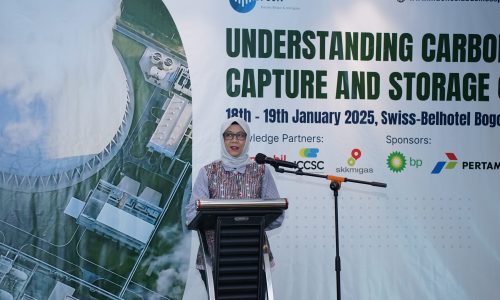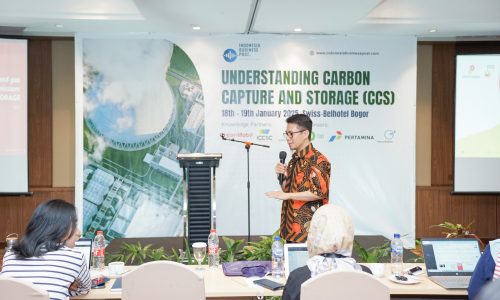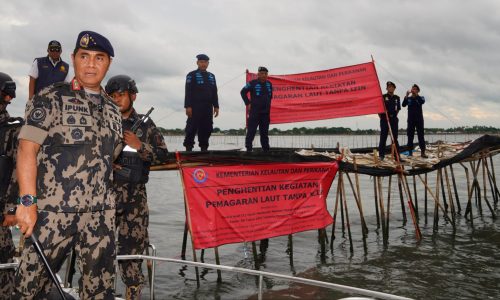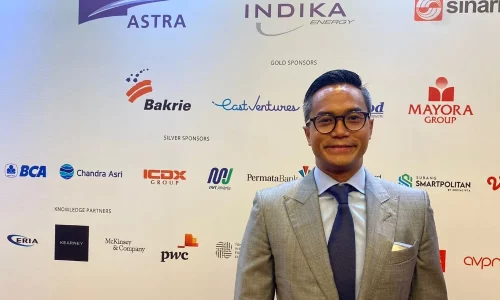Indonesia has Presidential Decree No. 14/2024 which regulates the implementation of carbon capture and storage (CCS) activities as part of national carbon emission efforts.
This regulation implements various aspects, ranging from exploration permits, storage operation permits, tax provisions and economic incentives related to CCS. In this regulation, carbon storage capacity will be allocated 70 percent for domestic needs and 30 percent for overseas, especially for investment and foreign investor affiliations.
“The implementation of CCS is expected to reduce emissions from energy-intensive industries and increase global competitiveness,” Mamik Cahyono, a senior official at the Ministry of Energy and Mineral Resource (ESDM), said while addressing Journalism Workshop: Understanding CCS held by Indonesia Business Post inBogor, West Java, on January 18-19, 2025.
In addition, Presidential Decree No. 14/2024 also regulates on a mechanism for measuring, reporting, and verifying (MRV) stored carbon emissions, as well as determining administrative sanctions for permit violations. The government emphasized that CCS will be one of the main solutions to support the net zero emissions target by 2060.
In addition, the ministry has issued Ministerial Regulation of Energy and Mineral Resources No. 2/2023 which regulates on the implementation of Carbon Capture and Storage (CCS) and Carbon Capture, Utilization, and Storage (CCUS) in upstream oil and gas bump business activities.
This regulation covers all technical, legal, and economic aspects of CCS/CCUS, from capture, transportation, injection, to carbon storage. Contractors involved are required to include CCS/CCUS plans in their Plan of Development (POD).
“CCS/CCUS will be an integral part of oil operations and is expected to be able to significantly reduce carbon emissions,” Mamik cited.
This regulation also introduces a cooperation mechanism between contractors and third parties, as well as supervision and enforcement of administrative sanctions to ensure implementation in accordance with safety and environmental standards.
This journalism training event is supported by ExxonMobil Indonesia, bp Indonesia, State energy company PT Pertamina, State power utility PT PLN, Medco Energy International, Indonesia CCS Center and Upstream Oil and Gas Regulatory Task Force (SKK Migas).









